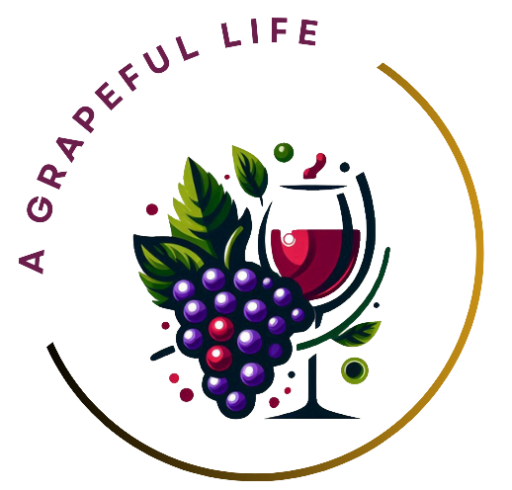Organic wine is one of those things where what it’s not is as important as what it is. Essentially, organic wine is crafted from grapes that have been grown organically. This means no synthetic fertilizers, pesticides, or herbicides. It’s all about keeping it natural and letting the grapes thrive just as they are, without chemicals interfering. All this points to some health benefits of drinking organic wine.
The difference between organic wine and conventional wine starts right in the vineyard. Organic growers focus on the health of the soil and plants, often doing things to boost biodiversity. It’s not just about avoiding chemicals; it’s a holistic approach to winemaking. This means healthier vines, which, in theory, lead to tastier wines and a better world for all of us.
If you’re wondering how organic wines earn their title, it’s all down to certification. These wines have to meet strict guidelines that vary from country to country, but the gist is, they must be grown and produced with the planet in mind. You won’t see any artificial sulfites in most organic wines either, making them quite unique in the wine aisle.
With more people opting for environmentally-friendly choices, organic wine has surged in popularity. It’s more than just a trend; it’s a shift towards sustainability and wellness. With each glass, drinkers are not just enjoying a wine that’s potentially better for their health, but also one that gives a nod to protecting our environment. It’s a win-win situation, really.
Unveiling the Health Benefits of Organic Wine
Talking about the health benefits of organic wine often gets wine enthusiasts curious. These benefits aren’t just something to brush aside. Research has shown that organic wines might come with added perks for the health-conscious.
Organic wines are usually brimming with antioxidants like polyphenols and resveratrol. Both have been linked to various health benefits, like improving heart health and reducing inflammation. A glass of organic wine could help in keeping your heart in check, which sounds like a nice bonus to a lovely dinner.
Another upside is the reduced exposure to chemicals. Because organic wines come from grapes grown without synthetic pesticides, there’s a lower chance of those chemicals ending up in your glass. This means choosing organic could help in reducing the chemical load in your body.
Organic wine can fit into a balanced lifestyle too. Consider it part of your journey towards cleaner living—you’re not just reducing synthetic inputs, but also indulging in a product that often aligns with broader ethical and health values.
This blend of benefits makes organic wine not just a treat for your taste buds but potentially a boon for your well-being. Who knew a glass of organic wine could pack such a punch?
The Economics of Organic Wine: Is It Worth the Investment?
When picking up a bottle of organic wine, you might notice the price tag’s a bit higher. Wondering why? It’s not just about the label—several factors play into the cost.
Organic vineyards require more intensive labor and management. Maintaining an organic vineyard often means investing in methods that nurture soil health and natural pest control, which can be more pricey compared to conventional farming.
The certification process to label a wine ‘organic’ adds to the cost too. Winemakers often have to go through rigorous checks to earn that organic stamp, which translates to a few extra bucks for the consumer.
The question remains: are the health benefits of organic wine worth the extra cost? Many folks find value in knowing they’re supporting environmentally-friendly practices and potentially benefiting their health.
Ultimately, choosing organic wine can be a personal investment, aligning with one’s values and health goals. In the end, it’s about finding joy and peace of mind in every pour, knowing that it’s a bit kinder to both you and the planet.
Exploring Notable Organic Wine Producers Worldwide
If you’re keen on exploring organic wines, a few producers really stand out on the global scene, showcasing the best of what organic winemaking has to offer.
In Europe, regions in France and Italy are at the forefront, with renowned vineyards that have been pioneers in organic practices. For instance, Château Maris in France’s Languedoc region is often lauded for its commitment to sustainable and biodynamic farming. Their wines not only taste great but also tell a story of rich tradition harmonized with sustainable innovation.
Heading over to California, Frey Vineyards deserves a mention. Known as America’s first organic winery, their offerings provide a delightful taste without synthetic additives, and they emphasize eco-friendly production processes.
Australia’s organic wine producers deserve some love too. Angove Family Winemakers is making strides, offering everything from Shiraz to Chardonnay, crafted with a strong focus on minimal intervention winemaking.
These producers not only focus on reducing the environmental footprint but also elevate their craft, ensuring each bottle reflects the passion and care that went into its creation. With each sip, you’re not just enjoying a drink but supporting a wave of producers committed to making a difference.

I’m a late bloomer when it comes to appreciating and enjoying wine, so this information is definitely timely for me as now I’m eager to learn more about organic wine production and explore their tastes. It seems an obvious incentive to enjoying these type of wines are the health benefits to both humans and the planet … you can’t go wrong there it’s a win-win for all! I’m also intrigued by the process … does it take longer to produce and is there a difference in average cost?
Hi Roberta! Nothing wrong with a late bloomer. I think more time and care is taken in the growing and maintaining the soil health phase definitely. Usually the price of organic wine is a little higher than others. Thanks for taking the time to comment.